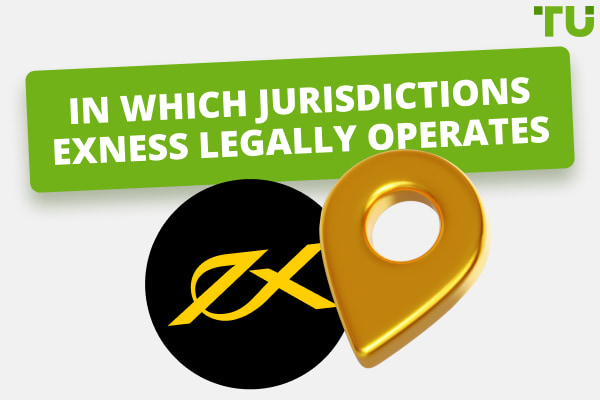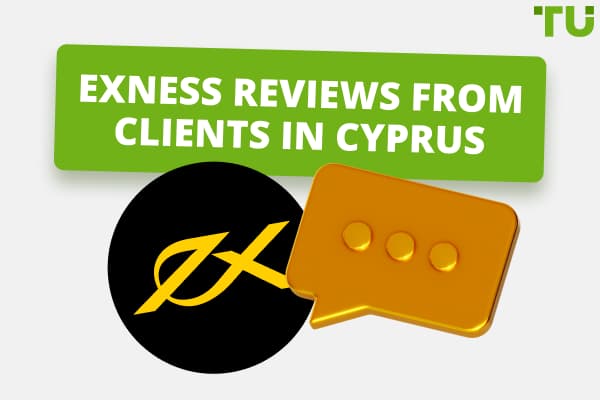
IC Markets Fees and Spread Review
IC Markets is a global leading online forex broker offering superior execution, low spreads, and unrivaled liquidity. On the platform, traders can trade a wide range of instruments, including currencies, stocks, commodities, futures, bonds, and digital assets. The company is regulated by the ASIC (Australia) and FSA (Seychelles).
IC Markets is an ideal broker for investors who are looking for a broker that allows them to carry out automated trading strategies on MetaTrader and cTrader platforms. Another notable characteristic of IC Markets is that it’s a cheap broker, with a cheap ECN account with low spreads and fees. This guide looks at IC Markets fees, including trading and non-trading fees.
| Accounts | Fee Level | Fee Terms |
|---|---|---|
cTrader |
Low |
Variable spreads from 0 pips, $3.0 commission per lot |
Raw Spread |
Average |
Variable spreads from 0 pips, $7 commission per lot |
Standard |
Low |
Variable spreads from 0.6 pips, no commissions |
Is IC Markets Cheap?
IC Markets has attractive conditions for trading and investing, allowing you to save on commissions and get more profit. IC Markets offers some of the lowest commissions in the industry because it has a cheap ECN account with low spreads and fees.
The electronic communication networks (ECN) pricing model means that IC Markets sources their pricing from external unrelated liquidity providers. As a result, they’re able to pass cheaper prices onto traders with no dealing desk intervention.
By using different liquidity providers, IC Markets is able to offer prices from these providers to compete in the same auction. This means that traders using the IC Markets platform usually get better prices, tighter spreads, and cheaper trading positions.
IC Markets - Forex Fees and Spread
Compared to some of its competitors, IC Markets is the cheaper broker. For example, as seen in the table below, IC Markets is cheaper than both Tickmill and FxPro. Tickmull has forex spreads of up to 1.8, while the highest for FxPro is 1.76 for GBPUSD and 1.67 for USDJPY.
IC Markets Spread Compared
| IC Markets | Tickmill | FxPro | |
|---|---|---|---|
EURUSD |
0.62 |
1.7 |
1.61 |
GBPUSD |
0.83 |
1.8 |
1.76 |
USDJPY |
0.74 |
1.6 |
1.67 |
Forex Trading Fees
Typically, forex trading fees include the spread, which refers to the difference between the bid and asking price for a currency. The bid is the price you can sell a currency for, while the ask price is the price you can buy a currency for. The spread is how no commission brokers make their money.
How much these fees are depends on the brokers and the currency pair being traded. Fortunately, IC Markets has low commission fees, which helps traders maximize their profits and minimize losses. IC Markets is an ECN account broker that has a fixed fee, which is one of the lowest on the market.
As you can see in the table, IC Markets doesn’t charge commission on Standard accounts. However, to offset this, the broker applies a spread market of up to 1 pip above the prices received from their liquidity providers.
In the Raw Spread account, IC Markets charges a commission of $7 per standard lot round turn. The ECN account average spread is 0.1 pip, which is relatively cheaper than Tickmill and other brokers.
| Fee | IC Markets | Tickmill |
|---|---|---|
Standard Account EURUSD Average Spread |
0.62 pips |
1.7 pips |
Standard Account Fee |
$0 |
$0 |
ECN Account Fee |
$3.5 per lot |
$2 per lot |
ECN Account EUR Average Spread |
0.1 pip |
0.1 pip |
IC Markets CFD Fees and Spread
On the IC Markets platform, you can trade a wide variety of financial instruments, including CFDs on stocks of the world’s largest companies, futures contracts, and more. It’s important to be familiar with the fees for all these assets. The below tables display the fees for some of IC Markets trading instruments.
| Instrument | Average Spread |
|---|---|
GBPUSD |
0.83 |
WTI (West Texas Intermediate - Crude Oil Futures) |
0.027 |
US500 (US SPX 500 Index) |
0.492 |
XAGUSD (Silver vs. U.S. Dollar) |
1.894 |
JGB10Y (Japanese 10 YR) |
0.034 |
ETHUSD (Ethereum vs United States Dollar CFD) |
11.605 |
As you can see in the table, IC Markets boasts some of the tightest spreads on the market, which are even better than those of competitor Exness. And Exness is a broker that’s known for its cheap spreads.
IC Markets Non-Trading Fees
Non-trading fees on a platform are just what their names suggest. They’re the fees you pay that aren’t related to trading. Typical non-trading fees are inactivity fees, withdrawal fees, deposit fees, and account fees.
Here, we discuss whether IC Markets charges non-trading fees.
Does IC Markets Charge an Inactivity Fee?
Unlike many brokers, IC Markets doesn’t apply an inactivity fee. This is highly beneficial for traders because their accounts won’t be charged even if they don’t trade for a long period of time (months or years).
Does IC Markets Charge a Withdrawal Fee?
IC Markets doesn’t charge any additional fees for withdrawals or deposits. However, keep in mind that you may have to pay fees depending on the withdrawal method you use and your banking institution.
Does IC Markets Charge Other Fees?
Other than trading fees, IC Market doesn’t charge traders any other fees. You can deposit and withdraw funds with no commission, and there’s no inactivity fee. Therefore, it’s a pretty affordable platform to trade on.
IC Markets Financing Rates
Knowing the financing rates of a broker is important if you plan to trade on margin and hold your positions long. This is because financing rates can be higher if this will be your strategy.
The below table illustrates the financing rates on IC Markets.
| DIfferent CFDs | FInancing Rates |
|---|---|
Apple CFD |
3.1% |
EURUSD |
1.2% |
EURUSD |
1.5% |
IC Markets Swap (pips)
Swap fees are also important to consider when looking at the affordability of a broker. These fees represent the interest rate difference between two currencies of the forex pair you’re trading. This is what you pay when you hold a position overnight.
In the table below, you can see that IC Markets’ swap fees for some widely traded currency pairs are lower than those of FxPro. For example, for a GBPUSD short position on the iC Markets Standard account, the fee is -0,1, compared to -3,547 on FxPro.
When considering swap fees, be sure to check back regularly as they tend to change often.
| IC Markets (Pro-Standard) | IC Markets | FxPro | |
|---|---|---|---|
GBPUSD short |
-0,1 |
-2.11 |
- 3,547 |
GBPUSD long |
-0,41 |
-2.19 |
-1,1107 |
EURUSD short |
0,19 |
2.45 |
- 0,9251 |
EURUSD long |
-0,76 |
-5.6 |
-4,7898 |
USDJPY short |
-0,8077 |
-5.55 |
-3,7634 |
USDJPY long |
0,0214 |
1.02 |
-0,4747 |
Summary
If you’re looking for a highly affordable forex and CFD broker with low commissions and spreads, then IC Markets is a great place to start your trading journey. Using this broker, you can take advantage of higher profits and minimize losses.
Plus, it’s great to use for automated trading strategies, and it provides an extensive selection of research and educational materials. Therefore, with its low fee structure and great features, IC Markets is a great platform for beginners to use.
FAQs
Are there fees on IC Markets?
Most of IC Markets' earnings are from their spreads rather than fees. Therefore, you won’t really see any high fees on the platform. In fact, the fees are very cheap, especially when compared to competitors.
Is IC Markets cheap for beginners?
Yes, beginners will find the trading fees on IC Markets affordable, especially if they create a Standard account, which has variable spreads from 0.6 pips, and no commissions.
How much are IC Markets withdrawal fees?
IC Markets doesn’t charge any withdrawal fees or any other non-trading fees. However, depending on your bank, you still may have to pay processing fees if making a bank transfer.
What is a spread?
A spread is the difference between the bid and ask price of a currency pair. The bid price is the price at which you sell an asset. And the asking price is the price at which you can buy it. For example, if USD/JPY had a bid price of 110.00 and an asking price of 110.04, the spread would be 0.0004, or 4 pips. The amount of a spread depends on the asset you’re trading, market conditions, and the broker you’re trading with.
Team that worked on the article
Mikhail Vnuchkov joined Traders Union as an author in 2020. He began his professional career as a journalist-observer at a small online financial publication, where he covered global economic events and discussed their impact on the segment of financial investment, including investor income. With five years of experience in finance, Mikhail joined Traders Union team, where he is in charge of forming the pool of latest news for traders, who trade stocks, cryptocurrencies, Forex instruments and fixed income.
The area of responsibility of Mikhail includes covering the news of currency and stock markets, fact checking, updating and editing the content published on the Traders Union website. He successfully analyzes complex financial issues and explains their meaning in simple and understandable language for ordinary people. Mikhail generates content that provides full contact with the readers.
Mikhail’s motto: Learn something new and share your experience – never stop!
Olga Shendetskaya has been a part of the Traders Union team as an author, editor and proofreader since 2017. Since 2020, Shendetskaya has been the assistant chief editor of the website of Traders Union, an international association of traders. She has over 10 years of experience of working with economic and financial texts. In the period of 2017-2020, Olga has worked as a journalist and editor of laftNews news agency, economic and financial news sections. At the moment, Olga is a part of the team of top industry experts involved in creation of educational articles in finance and investment, overseeing their writing and publication on the Traders Union website.
Olga has extensive experience in writing and editing articles about the specifics of working in the Forex market, cryptocurrency market, stock exchanges and also in the segment of financial investment in general. This level of expertise allows Olga to create unique and comprehensive articles, describing complex investment mechanisms in a simple and accessible way for traders of any level.
Olga’s motto: Do well and you’ll be well!









